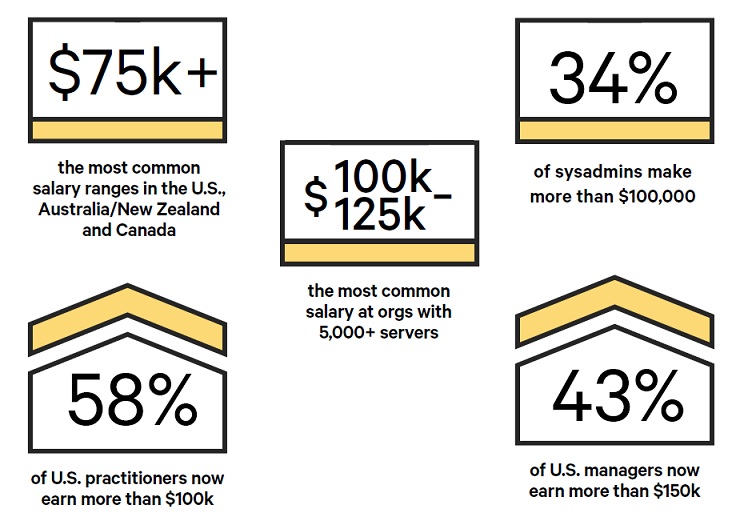In spite of the increasing adoption of agile and DevOps initiatives, a recent Tasktop survey identified the need for tools — that increase coordination in the software delivery process — to have stronger alignment with customer and business needs ...
Vendor Forum
More and more, developers are embracing microservices when it comes to building applications. The growth of cloud and mobile technologies has seeded the need for developers to move away from traditional monolithic approaches to development. That's where microservices provide the strategic tool needed to harness these new and evolving technologies. Today's truly innovative companies are harnessing microservices to succeed, to modify, scale and update their apps continuously in order to meet changing business needs ...
Companies of all sizes still struggle with the challenges of successfully implementing and sustaining an effective hybrid IT ecosystem. However, incorporating the core principles of a DevOps culture into nearly any environment can allow organizations to better and more fully realize the agility and efficiency of cloud-first organizations ...
There comes a time when the vendors that serve every subset of the IT industry need to forgo self-interest and put aside competitive drivers to do whatever it takes to advance the cause of the user. Thankfully, such an effort to bring together providers of critical technology to benefit customer implementation has already emerged ...
In an industry where failure is unavoidable, learning and innovating through feedback loops is your best course of action. Instead of focusing on increasing the time until your next failure, you should focus on decreasing the time it takes for your systems to recover following a failure ...
Inevitably, software and application developers are forced to delay pushing fixes and features because other parts of the code are not ready. "Integration Hell" earned its name because clients are missing out on the latest versions of applications. This can be avoided with continuous integration ...
At its emotional core, Star Trek explores the bond between two very different species – Kirk and Spock – who team up to seek out new worlds and defend the Enterprise. In many ways, the same can be said for developers and security teams. How so? In Part 1 of this blog, we covered Clear Visualization and Teamwork. Here are 2 more ways ...
We've all heard the jaw-dropping stats on just how much DevOps speeds up software delivery. For instance, the latest State of DevOps report shows that high-performing IT organizations deploy 200 times more frequently than low performers. When we read about how IT departments transform their release velocity with DevOps, the increases in teamwork are emphasized. But the truth is that without the spine of Application Release Automation (ARA), DevOps teams would not be able to flex their collective muscle ...
The software industry has accelerated its shift towards microservices and has fully embraced distributed, cloud native apps. Because existing application security models were designed for a different era, they are woefully inadequate, exposing both consumers and companies. By (mis)matching where software is going with what application security has been, and as evidenced by several recent high-profile leaks, we are all at risk ...
For teams moving to test-first methodologies, helping developers and testers acquire new technical skills, workflows and processes is job one. Here's what you need to consider from a people and skills development perspective ...
The ability to react quickly to market changes and launch new features and functionality is critical to maintaining a competitive edge. Yet today, DevOps teams must spend substantial time and resources dealing with database scalability. If they need to consider scalability implications every time they roll out new code, the agile process breaks down ...
The experiences we have with mobile apps have progressed from a competitive differentiator to table stakes and to remain relevant, companies must constantly anticipate and react to changing customer behaviors and user trends. The pace of change is causing significant challenges for web and mobile professionals, and important things to consider when facing these challenges and striving for the best experiences include ...
As dev teams and product owners begin the Agile development process, they meet to discuss how users will interact with their applications. They write these user stories down on sticky notes or index cards, arranging and re-arranging them into an order that they feel makes sense. These stories create the basis of their Agile requirements process. When done poorly, user stories lead to missed or misunderstood requirements which 96% of application development and delivery professionals blame for project delays and rework ...








